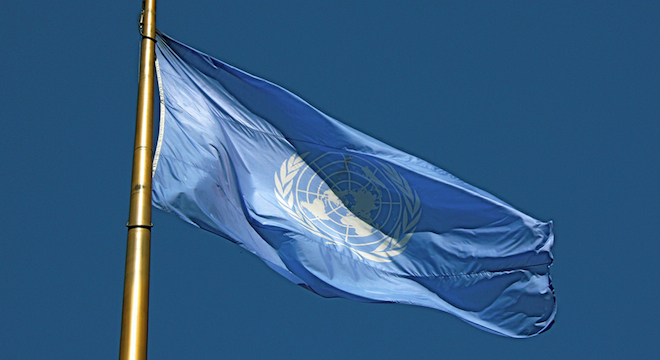The International Telecommunications Union, the official United Nations telecommunications agency on Friday announced that it would soon be making public a document that could determine the future of the Internet, a document that had previously been restricted only to government officials and selected paying members.
“The world is changing, in large part thanks to the growth in telecommunications facilitated by the ITU, and we need to adapt to that changing world,” said Hamadoun Touré, the ITU’s Secretary General, in a statement.
Specifically, the ITU said that in “in the coming days,” it will publish on its website a document containing proposals from many of the 193 member nations that make up the United Nations on how their governments think that the international telecommunications regulations and standards reached in a 1988 treaty should be updated to address the rise of the Internet.
The ITU member states are due to convene again in Dubai in December for a summit known as the World Conference on International Telecommunications, to officially overhaul the treaty.
But over the course of the summer, U.S. lawmakers and advocacy groups have become increasingly concerned that the summit will be “hijacked” by countries seeking to use the opportunity to legitimize state control and censorship of the Internet, namely Russia, China, and some Arab nations.
Further, the critics accuse the ITU of facilitating such a maneuver by restricting access to the new regulation proposals from the various nations. Also, they maintain that the ITU is seizing the opportunity to advocate for UN control of the internet under the guise of enhancing global cyber security, which has become a hot topic in the wake of reports that the U.S. and Israel jointly engineering cyber weapons known as Stuxnet and Flame.
The ITU has consistently pushed back against such claims, saying it does not have any ambitions of its own per se, aside from merely being a neutral coordinating body and a vessel for discussion between countries.
The decision to publish its master document containing 450 proposals submitted for the Dubai conference, a document known as TD64, appears designed to help counter this criticism.
But U.S.-based Web freedom advocacy groups aren’t particularly impressed with the move, pointing out that the document the ITU says it will release was already published online weeks ago as a leak on the activist-run website WCITLeaks.org.
“Its release is not sufficient to ensure that the WCIT negotiations will be transparent and inclusive of the views of civil society,” wrote Rashmi Rangnath, an attorney from Public Knowledge, a Washington, D.C.-based organization that calls for transparency and greater Web user rights, in an email to TPM.
“What would make the WCIT process truly transparent is release of all country proposals as they are provided to the ITU,” Rangath added. “This would allow everyone to see how the process of negotiation is evolving and respond to proposals that are most current.”
Eli Dourado, a co-founder of WCITLeaks.org and a research fellow at the Mercatus Center at George Mason University, a division of the school dedicated to studying free markets, expressed similar misgivings about the ITU’s move to TPM.
“We find this news underwhelming,” Dourado told TPM via email. “Making a single document public does not add much transparency, since the general public has no way of understanding the context in which that document was produced.”
Further, Dourado argued that the ITU’s rationale for making the documents publicly available was hollow.
“The public will gain very little because it is hard to evaluate the text of the treaty without knowing which countries object and why,” Dourado said. “Some proposals appear innocuous until you recognize that the text is pregnant with implications that only the participants are in a position to understand.”
Dourado said that contrary to the ITU’s assertion that the TD64 document would be informative for the public and journalists, it was actually another document, TD62, which contains every single one of the proposals, that would perhaps better serve that purpose. That document is also available as a draft on WCITLeaks.org, though not officially from the ITU at this time.
“Our critique of the ITU’s transparency has clearly resonated,” Dourado acknowledged, adding though: “This is an attempt to deflect criticism, not a serious effort at reform…The ITU is an organization that is fighting for its survival. As the rise of the Internet has shown, the world does not need the ITU.”






